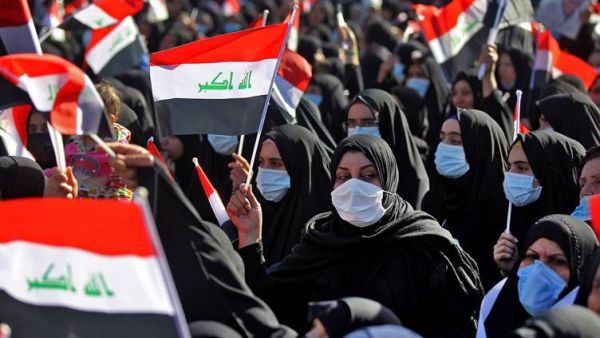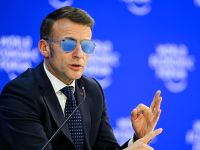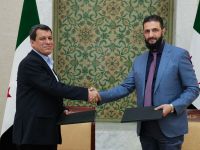ALBAWABA - One year on after Iraq held its last parliamentary election, the country remains in a deep political crisis. There is a deadlock among the different political factions over who should form the government. There has been bickering and more.
The UN has warned that "Iraq is running out of time" - one year on from a general election that has been followed by paralysing political deadlock. https://t.co/5Sg1KDiMK5
— The New Arab (@The_NewArab) October 11, 2022
Meanwhile there is a political paralysis both concerning the caretaker government, its Prime Minister of Mustapha Al Khadimi as well as the president Barham Salih whose term ended early this year but has stayed on till a new government can be patched together and a new figure head is chosen.
On the one-year anniversary of #Iraq's last general election - and with no government yet formed - the United Nations mission in Baghdad urged political factions to to end the 'protracted crisis' by beginning 'dialogue without preconditions'https://t.co/NXBYTaT88Q
— Yemen Details (@DetailsYemen) October 10, 2022
Its a political mess. The public sector is in chaos because Al Khadimi is unable to pass a budget until a new government is formed and policies are not being made to deal with the soaring unemployment and high cost of living. The caretaker government is there to make sure that the executive power continues.
— Ihsan Efrini (@Ihsan_Efrini) October 10, 2022
Meanwhile the deputies political wranglings has been taken to the streets with opposing parties fighting one another along well-defined factions lead by the one hand Muqtada Al Sadr who won 73 seats in the last election but has been unable to form a government even with his Sunni allies and because he is facing the Coordination Framework of motely Shiite parties who refuse to budge on ministerial seats.
Iraqi PM @MAKadhimi has called on all parties to resolve the political impasse through constructive dialogue, as the country today marked one year since it held its parliamentary elections.#Iraq #Kurdistan #TwitterKurds https://t.co/SyFe1JL4yK
— BasNews English (@EnglishBasNews) October 10, 2022
Meanwhile a year after Iraq's last general election on 10 October, 2021, the United Nations mission urged political factions to end the deadlock paralysing the oil-rich country, warning that "Iraq is running out of time" as reported by AFP.
Due to political gridlock, the #Kurdistan region of #Iraq's #parliament decided to postpone elections and prolong its term by one year on Sunday pic.twitter.com/6qBO30sJRf
— Al-Estiklal English (@alestiklalen) October 10, 2022
"The protracted crisis is breeding further instability... it threatens people's livelihoods," the UN Assistance Mission in Iraq said, urging "dialogue without preconditions" towards a stable government in the war-scarred nation, as quoted in the French news agency.
Iraq held early parliamentary elections in October last year but continues to be mired in political paralysis with rival factions vying for power.
— Rudaw English (@RudawEnglish) October 9, 2022
Join us on Monday for a timely discussion, marking one year since the elections, with @AL_Khatteeb and moderated by @aveeenkarim pic.twitter.com/rVmf3epz9S
The social media has been rife with the beleaguered one year anniversary that sees no end. While Iraqi government have always faced tough times in being formed especially after general elections this has never been experienced in the country before with politics leaving the legislative chamber into the streets.
Andy Vermaut shares:Anti-government protests in Iran gain traction as oil workers go on strike: Anti-government protests in Iran that started in the wake of Mahsa Amini's death show no sign of abating. https://t.co/80gz1xtxiQ Thank you. pic.twitter.com/YDQki8tWqo
— Andy Vermaut (@AndyVermaut) October 11, 2022
One year on the stalemate appears to be what it is, continuing till the parties themselves come together and say we want to form a new government. Some analysts say, in the final analysis Iran may have sway on the Coordination Framework and force it to sit down and agree to a cabinet but there are two things to consider.
Tehran has not, or was not interested on leaning on its allies for the past 10 months to create a credible government in its neighbour country, so why should it do so now? As well, Iran is facing its biggest political crisis in years with the death of the 22-year-old Mahsa Amini at a Tehran police station, is facing mass demonstrations all over the country and is not able people able to lean on anyone at the moment.







